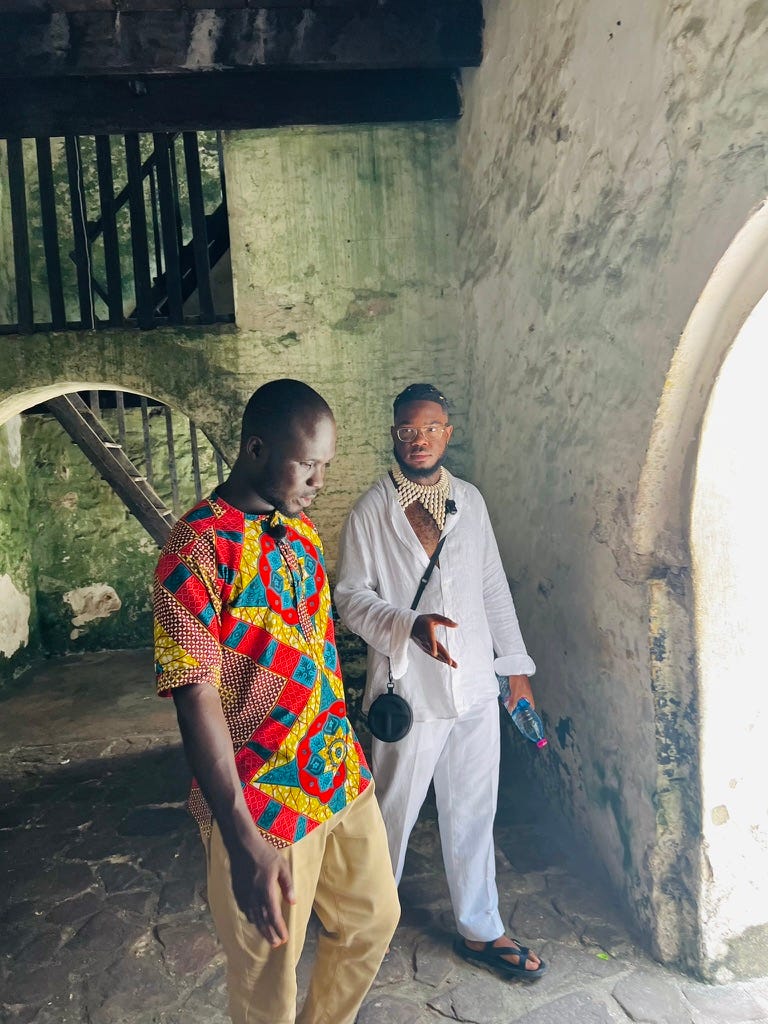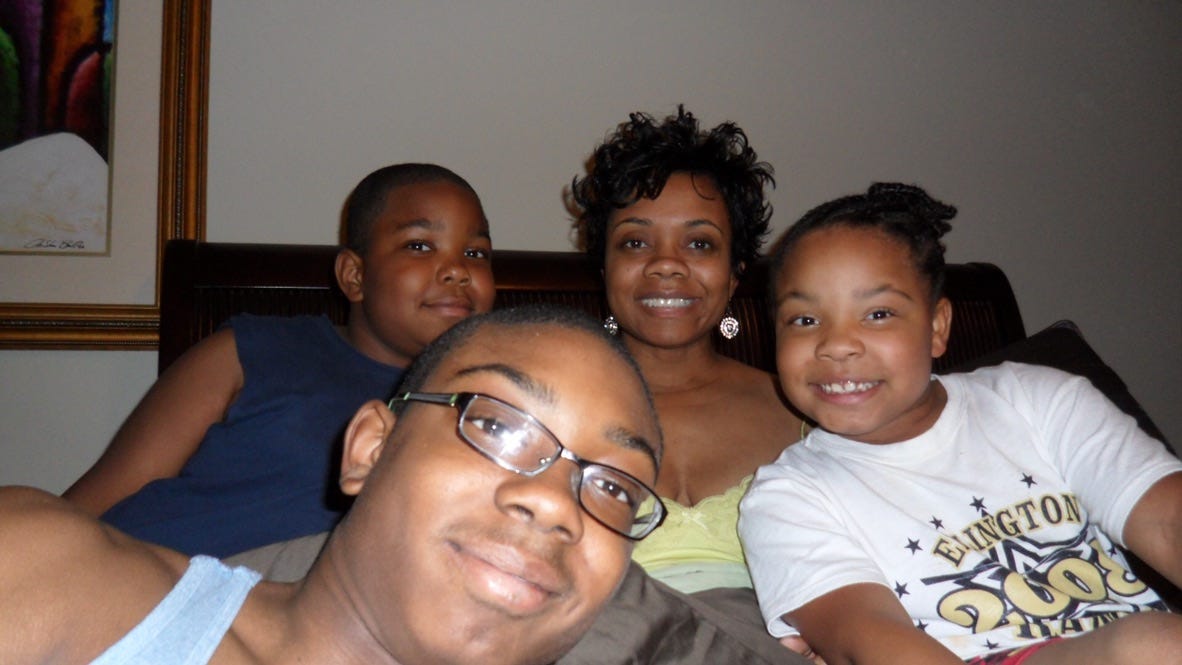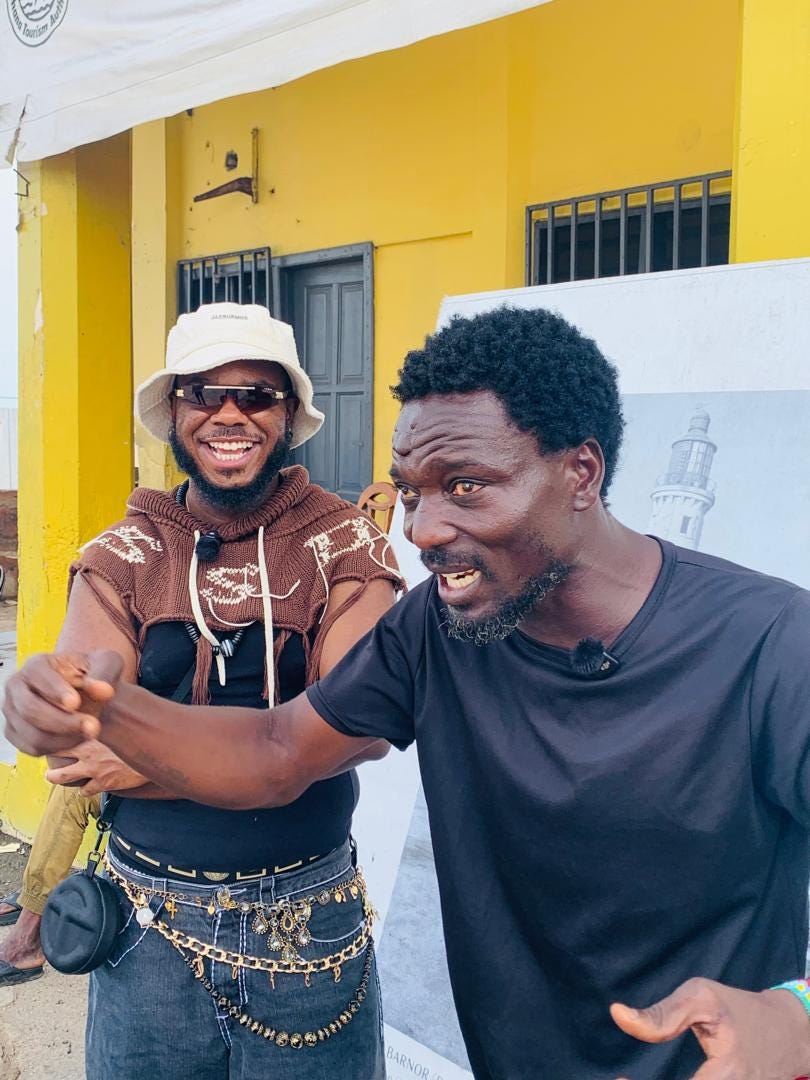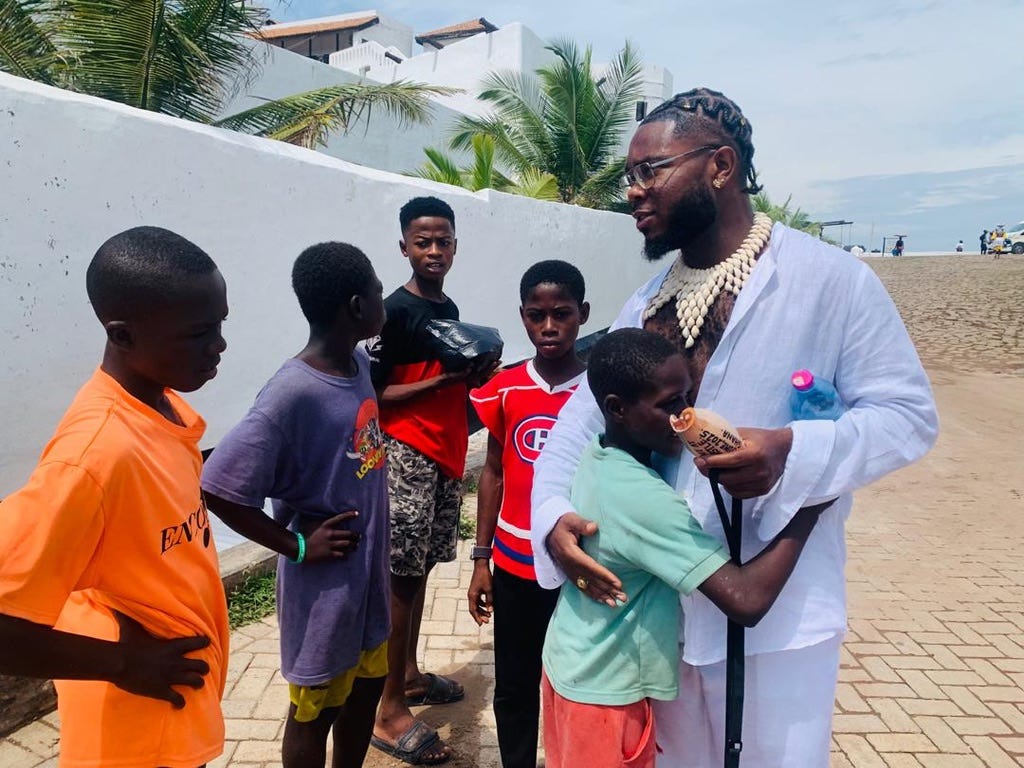From the Plantation to the Palace: My Return to Ghana
How Ghana restored my peace, identity, and purpose as a Black American man.
A New Kind of Arrival
I stepped off the plane and shed 400 years of sorrow. Ghana welcomed me with my 40 acres and a mule.
The Plantation Never Left Us
It was the summer of 2015 when my family and I took a road trip to New Orleans. On a sweltering day, we detoured to Edgard, Louisiana to visit Evergreen Plantation. The grandiosity of the estate stunned me—it resembled a southern White House. Inside the "Big House," I was overcome with emotion. How could any human justify reducing another to ⅗ of a person? Why were these white people so cruel?
Then I stepped into the only remaining slave cabin, a haunting contrast to the mansion's splendor. Rage filled me. I was furious that my people were treated like animals. Furious that white slave masters built their wealth by forcing us to work 16-hour days in cotton and sugarcane fields—for free. The plantation didn’t just represent slavery—it was the blueprint of capitalism. A reminder that although I may no longer till those fields, I was far from free.
In the Black community, remnants of the plantation still linger.
Colorism, for one. Light-skinned folks are praised, often subconsciously, because historically they didn’t labor in the sun—they were the “house slaves.” Many were born of rape and thus deemed closer to whiteness. Even among the enslaved, division was engineered.
Then there’s the “good hair” conversation. At dinner tables, light-skinned girls are told their hair is “easy to comb.” Meanwhile, those with tight 4C coils are mocked:
"Yo shit nappy. Why don’t you relax it?"
We don’t even realize how much of our behavior is still tied to the plantation.
Disinherited and Disconnected
The legacy continued in my own family through a lack of financial literacy.
Our ancestors couldn’t read, let alone understand how their labor built white fortunes. When freedom came, we were left with a wide knowledge gap:
Invest? “Why throw my money away when the market can crash?”
Life insurance? “I need money while I’m alive.”
Roth IRA? “What the hell is that? I’ve got bills today.”
I recently learned that my Big Daddy owned Conkrite Construction—he helped build much of Houston’s I-610 loop. He also owned a nightclub. But financial mismanagement and greed led to the downfall of both.
What if Big Daddy had passed those down?
What if generational wealth had been the standard?
In white families, wealth often trickles down. In mine, it flows upstream—elders looking to the younger generation to "retire them."
What do I inherit?
Pain. Trauma. Persecution. Baggage.
My Soul Left Before I Did
I was never spiritually connected to America.
As a Black man, I’ve never felt like this land was mine. I was just passing through. My soul longed for Zion. Because if Heaven wasn’t my home… then Lord, what would I do?
The disconnection started early. In second grade, my teacher Mrs. Kessler complimented my haircut, then asked if my barber gave me a cigar afterward.
I remember going home and telling my mom. That stuck with me.
Middle school?
The registrar refused to give me a class schedule without proof of homeownership.
High school?
I was cheated out of being class president.
College?
Professors assumed I was an athlete.
Workforce?
I was invisible in Zoom meetings dominated by white women who spoke over me.
And when Trump took office, ushering in what I call The New Antebellum, I knew—it was time to leave.
Touching Down in Ghana
By the time I arrived in Ghana, my soul had already traveled ahead of me.
Walking through the bustling crowds of beautiful Black Ghanaians, my spirit felt grounded. Strolling down Oxford Street, I finally felt present. My eyes locked with every soul I passed. And in their eyes—I saw myself.
My palace wasn’t a place. It was a feeling:
Belonging. Peace. Safety. Confidence.
I couldn’t go anywhere in Accra without turning heads. Not because I was a spectacle—but because I glowed. In Ghana, my spirit and body aligned.
Elmina, Tamale, Labone—And the Ancestors
At Elmina Castle, I stood in the slave dungeons. Chills wrapped around me. The walls whispered.
I wasn’t sure if I was a tourist… or a soul returned.
I saw bodies of my ancestors—chained, praying, screaming.
I saw colonizers—fat, lice-ridden—inspecting our bodies like cattle.
I heard the whip. I saw the rape. I tasted blood and salt in the air.
I disassociated completely. Time collapsed. I was there.
Later, in Tamale, a traditional sightseer read my path with cowrie shells. The room grew cold. He told me things no one else knew. Time bent again. I wasn’t in 2025—I was in another life. Another dimension.
At Polish’d Salon in Labone, my manicurist Angela spoke, but it wasn’t just her voice. It was the voice of my ancestors. These weren’t just conversations. These were confirmations. I was royal. I was rooted. I was restored.
This Is What Home Feels Like
Before Ghana, I thought home was physical.
But now I understand: home is where the spirit rests.
In Accra, I didn’t have to explain myself. I didn’t have to brace for impact. I wasn’t stared at in disgust—but in reverence. I wasn’t a tourist. I was a returnee.
From LaBadi Beach to Elmina, from Rice Xpress to TMS Salon—everywhere I went had meaning. Nothing felt random. I was walking on divine assignment.
This wasn’t just a homecoming.
It was a reclamation.
The diaspora often talks about returning to Africa physically. But this—this was spiritual. I wasn’t just visiting. I was remembering. Rebuilding what had been stolen.
I didn’t just step into Ghana. I stepped back into myself.
Repatriation Is Royalty
Ghana has awakened a king who was asleep for centuries.
Where the plantation reduced us to property, Ghana restored me to royalty.
My palace is not made of brick and mortar—it’s made of purpose and peace.
You do not know what it means to be Black… until you know what it means to be free in the land of Blackness.
So I call every Black American home.
Honor Marcus Garvey. Embody Malcolm. Walk in DuBois' steps.
Come home.
Repatriation isn’t just about relocation—it’s about reclamation.
Reclaiming our history. Our knowledge. Our power. Our spirit.
I am no longer asking for a seat at the white man’s table.
I have built my own.
I have found my peace.
And I have returned home—to rule.
If you've ever felt spiritually exiled in America, let this be your sign. Come home. Walk in your royalty. Reclaim what was taken.







Thank you Justin for sharing your experience. It was moving and powerful. That’s exactly how I feel when I go back to Côte d’Ivoire